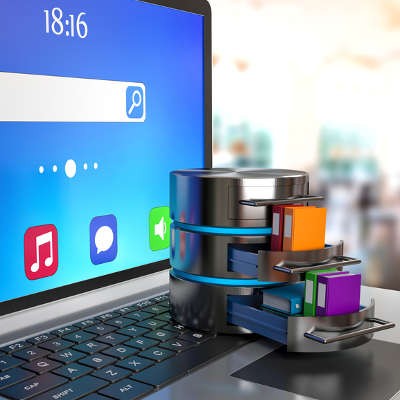Directive Blogs
Tip of the Week: Optimize Your Computer By Taking Care of the Clutter
Do you remember the day that you purchased your current workstation? Maybe it was last week, last month, last year, or several years ago. At one point, it was pristine, untouched by the demands of the workday, but those days have long since passed. Over time, your computer collects all sorts of stuff on it, from unnecessary files to outdated, unused software.
For this week’s tip, we’ll discuss ways in which your organization can cut down on the immense amount of digital clutter on your PC, ranging from how to organize the contents of your workstation, to what you can do with your old mobile devices and other unnecessary hardware you have lying about.
Organize Your Workstation’s Files and Network Drive
Is your desktop filled with all sorts of files and icons that make navigating your workstation more difficult than it should be? This is a common problem, and it’s important to stay organized so you can be productive, especially if you utilize an on premise shared network drive. Make sure that all of your employees know the proper protocol for storing files before they are allowed to upload files to the shared drive.
You can work with the business technology experts at Directive for help if you feel your current system needs some work. Whether you need to better the organization process for stored data, or control who has access to things, we can assist you to make sure it’s done right, and backed up.
Remove Unnecessary Programs and Applications
As time passes, certain applications will lose their value. This is due to a number of factors, such as changes in internal policy, the size of your workforce, and so on. Perhaps you’ve found a better solution that suits your needs, but you forgot to uninstall the old one. Old programs that are no longer useful can take up valuable network space, and worse yet, they could become vulnerable if they aren’t kept updated. We recommend performing a network audit to determine exactly which applications are being used, and how often they’re accessed.
Properly Dispose of Unused Devices
When a device’s life cycle meets its end, or it’s simply outclassed by another, more potent device, it’s natural to replace it with something that better meets your organization’s needs. However, when you regularly refresh your hardware, you’ll wind up with plenty of extra devices just collecting dust. Even worse, these devices might be completely functional. You don’t want to simply throw away old computers, laptops, and mobile devices. This is bad for the environment as there are harmful metals and elements. It also puts your business at risk because your data may still be on the device even after deleting it. It’s best to have professionals purge the data and recycle old hardware.
That said, it never hurts to keep an extra workstation on hand just in case something bad happens to an employee’s computer in the line of duty. Still, all other devices that are no longer in use should be wiped of any data that’s on them (ask us if you have questions on how) before being recycled.
For more great tips and tricks, be sure to subscribe to Directive’s blog.



Comments